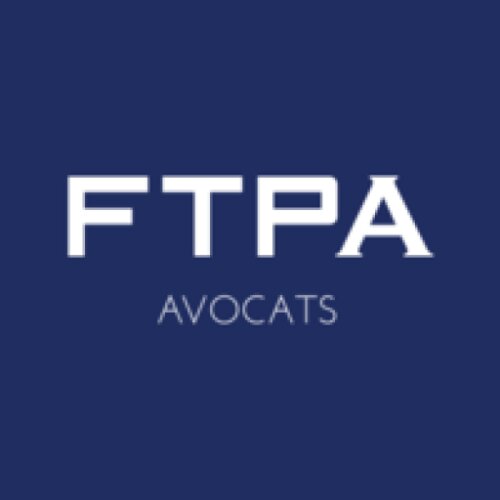Best Public-Private Partnerships (PPP) Lawyers in France
Share your needs with us, get contacted by law firms.
Free. Takes 2 min.
Or refine your search by selecting a city:
List of the best lawyers in France
About Public-Private Partnerships (PPP) Law in France
Public-Private Partnerships (PPP) are collaboration frameworks where public authorities and private entities work together to deliver public services or infrastructure projects. In France, PPPs have become increasingly significant in sectors such as transport, energy, health, and urban development. A PPP typically allows public sector bodies to benefit from the expertise, efficiency, and financing capabilities of private partners to implement complex or large-scale projects.
French PPP law is well established and regulated by various codes and statutes, primarily aimed at ensuring transparency, value for money, and legal certainty for both public and private partners. PPP arrangements are distinct from traditional public procurement contracts, offering greater flexibility and risk-sharing mechanisms.
Why You May Need a Lawyer
Navigating the legal landscape of PPPs in France can be complex due to regulatory, procedural, and contractual challenges. You may require a lawyer in the following common situations:
- Drafting and negotiating PPP contracts to ensure favorable terms and compliance with French law
- Structuring of tenders or responding to calls for proposals (“appel d’offres”)
- Interpreting applicable French or European Union regulations
- Resolving disputes between public authorities and private partners
- Managing project risks, deliverables, and performance obligations
- Advising on project financing and securing investment
- Dealing with regulatory authorities or administrative approvals
- Addressing changes or amendments during the project life cycle
- Handling issues related to intellectual property or data protection within the project
- Ensuring compliance with environmental and social requirements
Local Laws Overview
PPP law in France is governed mainly by the French Public Procurement Code (“Code de la commande publique”), which prescribes rules for the awarding, performance, and termination of public contracts. Key aspects include:
- Types of PPP Contracts: The most notable forms are “contrats de partenariat” (partnership contracts) and “délégations de service public” (public service delegation contracts).
- Procurement Procedures: There are specific competitive tendering processes to ensure open and fair competition.
- Contractual Flexibility: PPP contracts allow for allocation of risks between public and private entities, often for long durations.
- Control and Oversight: Contracts are subject to a high level of oversight from administrative courts and regulatory bodies.
- EU Law Influence: As a member of the European Union, France’s PPP framework complies with relevant EU directives on public procurement and concessions.
- Dispute Resolution: Disputes may be resolved through administrative litigation or, more rarely, arbitration.
Legal advice is crucial for navigating these requirements, protecting interests, and ensuring projects comply with both French and EU legal frameworks.
Frequently Asked Questions
What is a PPP contract in France?
A PPP contract in France is a legally binding agreement between a public authority and a private partner to design, finance, build, operate, or maintain public infrastructure or services.
How are PPP contracts awarded in France?
PPP contracts are awarded through competitive tendering procedures that ensure transparency and equal opportunity for bidders.
What are the main types of PPP contracts in France?
The two main types are “contrats de partenariat” (partnership contracts) and “délégation de service public” (public service delegation), each with its own legal framework and obligations.
What sectors commonly use PPPs in France?
PPPs are often used in sectors such as transport (roads, railways), energy, healthcare, education, and urban infrastructure.
What are the main risks in a PPP agreement?
Risks may include construction delays, financing challenges, changes in regulation, and termination risks. Effective contracts allocate these risks between parties.
Who regulates PPPs in France?
PPPs are supervised by various public authorities, including the Ministry of Finance and the French Treasury. Oversight may also be exercised by the Conseil d’État and regional government bodies.
Can foreign companies participate in PPP projects in France?
Yes, foreign entities can participate, provided they comply with local and European procurement rules and requirements.
Is dispute resolution handled by courts or arbitration?
Most PPP-related disputes in France fall under the jurisdiction of administrative courts, but arbitration may be used in certain contractually agreed situations.
What is the typical duration of a PPP contract?
PPP contracts often last between 15 and 30 years, reflecting the long-term nature of the projects involved.
What role does environmental law play in PPPs?
Environmental regulations are integral, requiring compliance with environmental impact assessments, sustainable development goals, and relevant permits.
Additional Resources
If you are looking for further information or assistance, the following resources may be useful:
- The French Ministry for the Economy, Finance and Industrial and Digital Sovereignty (“Ministère de l’Économie, des Finances et de la Souveraineté industrielle et numérique”)
- Agence France Locale (French PPP agency)
- The French Treasury (“Direction Générale du Trésor”)
- Council of State (“Conseil d’État”) for administrative legal matters
- The French Chamber of Commerce and Industry for business guidance
- European PPP Expertise Centre (EPEC) for EU-wide insight and French case studies
- Specialized legal professionals and bar associations in France
Next Steps
If you require legal assistance in the area of Public-Private Partnerships in France, take these steps:
- Identify your specific needs, such as contract drafting, compliance, or dispute resolution.
- Gather relevant documents, such as tender notices, proposed contracts, or correspondence.
- Consult a legal professional or law firm specializing in public law, administrative law, or infrastructure projects.
- Schedule a preliminary consultation to assess your options and establish a strategy.
- Engage a legal expert to guide you through negotiations, due diligence, or litigation if required.
- Maintain ongoing communication with your lawyer to monitor legal, regulatory, and project developments.
Seeking early legal advice can help prevent costly mistakes, maximize your project's potential, and ensure that your interests are protected throughout the PPP process in France.
Lawzana helps you find the best lawyers and law firms in France through a curated and pre-screened list of qualified legal professionals. Our platform offers rankings and detailed profiles of attorneys and law firms, allowing you to compare based on practice areas, including Public-Private Partnerships (PPP), experience, and client feedback.
Each profile includes a description of the firm's areas of practice, client reviews, team members and partners, year of establishment, spoken languages, office locations, contact information, social media presence, and any published articles or resources. Most firms on our platform speak English and are experienced in both local and international legal matters.
Get a quote from top-rated law firms in France — quickly, securely, and without unnecessary hassle.
Disclaimer:
The information provided on this page is for general informational purposes only and does not constitute legal advice. While we strive to ensure the accuracy and relevance of the content, legal information may change over time, and interpretations of the law can vary. You should always consult with a qualified legal professional for advice specific to your situation.
We disclaim all liability for actions taken or not taken based on the content of this page. If you believe any information is incorrect or outdated, please contact us, and we will review and update it where appropriate.
Browse public-private partnerships (ppp) law firms by city in France
Refine your search by selecting a city.














